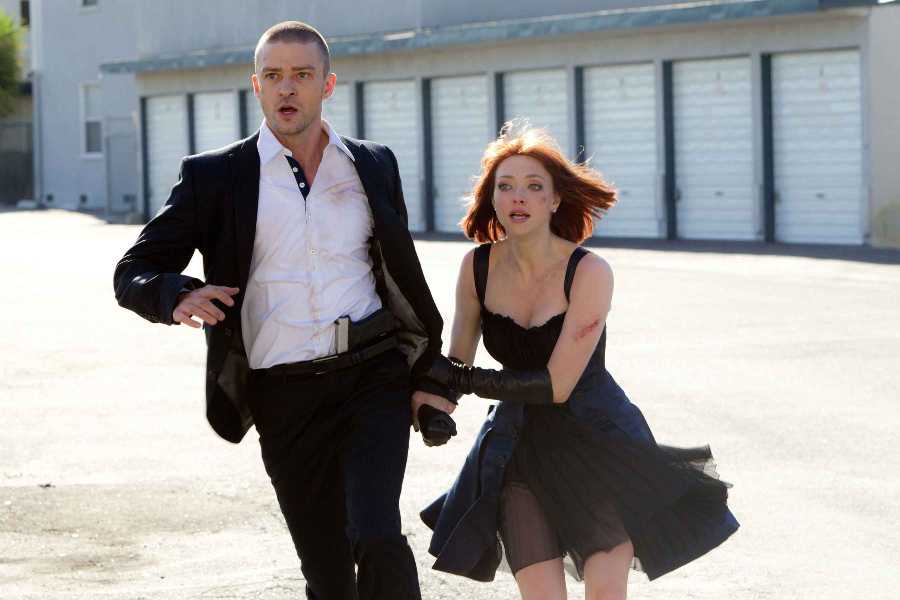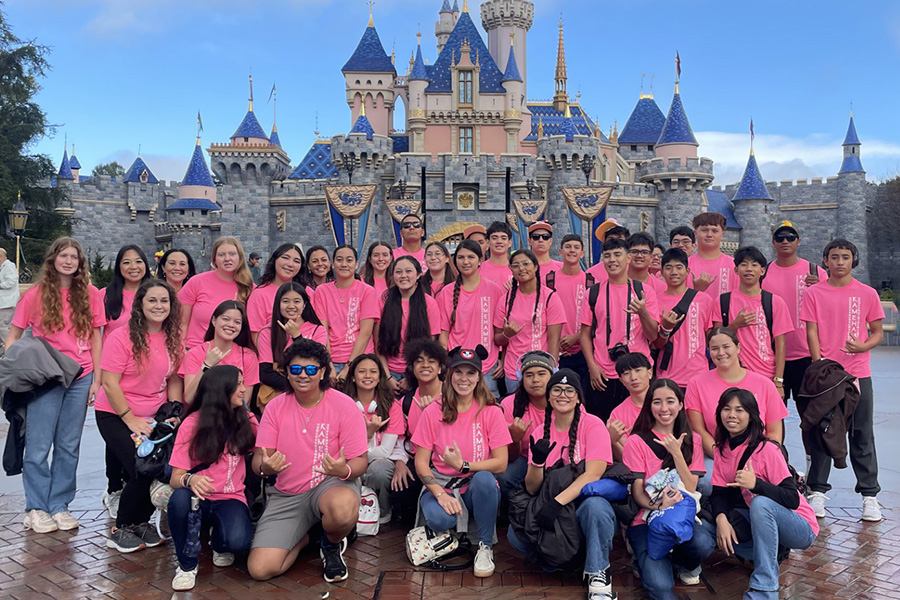In Time transports audiences to a whole different universe where literally money is time, and time is money.
In a new, futuristic world, humans have been engineered to stop aging physically when they turn twenty-five. This is also the age when their internal clocks start counting backwards, and once the clock hits those thirteen zeros, it’s over. Your time is not only your life support, but it is also your money. And since the clock is always counting down, there is this constant worry of never having enough time.
The story revolves around Will Salas (Justin Timberlake) who lives on the edge of life with just enough time to keep him going. One night, he meets Henry Hamilton (Matt Bomber), a rich man, with over a century of time on his internal clock. Will’s entire world is turned upside down when the man gives all the time to him, providing Will with a chance at immortality. The only question now is what do you do with all that time?
The concept of the movie itself is thought-provoking and truly impressive. This movie has brought a refreshing idea to their audiences, which we have needed for a while after all those vampire movies and TV shows.
Much like Inception, the movie leaves the audience thinking. It is not a movie you can walk out of, saying, “Oh, yeah. I get it.” It is a topic you can find yourself thinking about for hours, but still having trouble wrapping your head around.
The idea of time makes you notice how often you worry about time every day. The next time you say, “I don’t have enough time,” this movie will pop into your head and remind you of how precious every minute of your time really is.
The movie also had a lot of references to the world of today with inflation and the sad truth that only the rich can survive as the cost of living goes up.
In Time captures the hardships of living in a ghetto with people there who are living on their last few minutes, knowing that they are only seconds away from death. The people of the ghetto live day-to-day, always worrying that they do not have enough time, whereas the rich are never in a rush because there is an abundance of time.
It’s an allegory of a capitalist civilization where the lower classes of society scavenge as much as they can just to get by, while the higher classes barely fret over such trivial matters. The rich do not worry, for they have all the time in the world.
The film also had a variety of cast members that one wouldn’t normally see in a movie together (Amanda Seyfried, Alex Pettyfer, Johnny Galecki, Olivia Wilde and Cillian Murphy). It was especially interesting to see Amanda Seyfried star in an action movie, but her overall performance was fantastic. All the actors meshed well throughout the movie.
I was really excited to see this movie, and it turned out to be a film to be excited for, but there was still a small part of me that wanted a little more twist (yet again). I just wanted something to completely throw me off, but I have accepted that all movies are not able to do this.
I truly love the concept, but I feel that the plot could have been spiced up a bit. Other than that, it was a captivating thriller with romance, drama and a bit of humor thrown in. I give it a full hour and fifty-five minutes from my own clock, which is definitely not a waste of my time.
If you would also willingly give up your own precious time for this film (and I recommend that you do), In Time is now playing at the Maui Mall Megaplex.














Kealii Mossman • Nov 1, 2011 at 9:43 pm
“It’s an allegory of a capitalist civilization where the lower classes of society scavenge as much as they can just to get by, while the higher classes barely fret over such trivial matters. The rich do not worry, for they have all the time in the world.”
I’m tired of movies and TV shows (and OWS’ers) complaining about how bad capitalism is. As a business and economics teacher, I would argue that capitalism is a good thing. Granted, there are some negative aspects to capitalism, but what thing can you name that is perfect? Nothing.
Under capitalism, every person has the ability to move up the economic ladder. This is something that should (and actually does) inspire people. No other economic system allows for such movement. In a capitalist economy, the “lower classes of society” are not resigned to their position. In an alternate system, such as communism, the ability to move out of your government-mandated role is nearly impossible. I like what Thomas Friedman, in his book “The World Is Flat,” noted about capitalism. He says: “Communism was a great system for making people equally poor (and miserable) … capitalism makes people unequally rich.” Even with all its imperfections, we should celebrate capitalism. Don’t bash it. Embrace it. And, when you are rich, you can set up scholarships for Native Hawaiians. : )